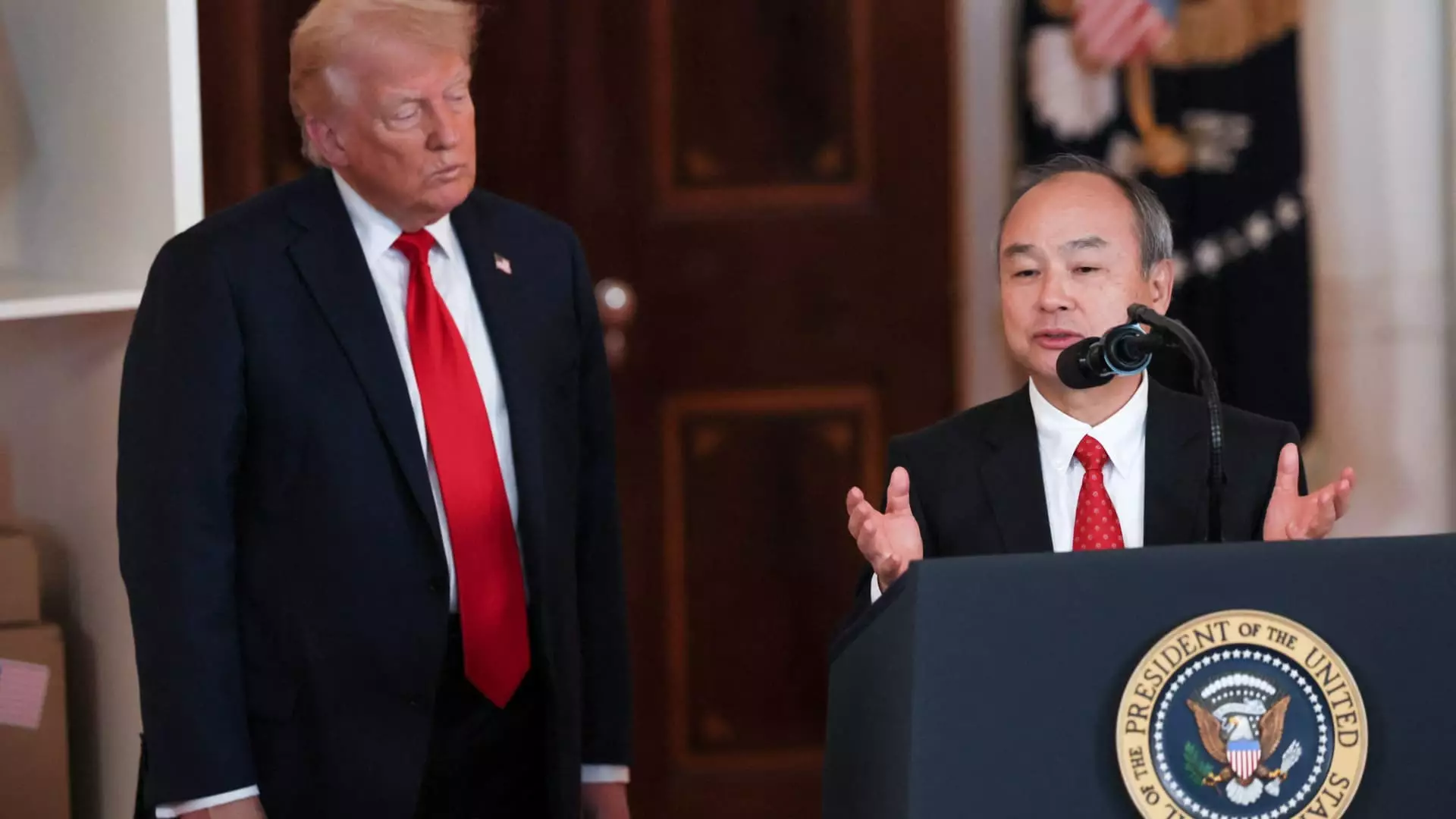SoftBank’s Vision Fund has recently found itself in treacherous waters, as exemplified by its fiscal year loss reported as of March. The tech behemoth observed a striking 40% decrease in gains from its Vision Funds, plummeting from a robust 724.3 billion yen to a mere 434.9 billion yen. This staggering fall raises pertinent questions: Is this a mere blip on the radar, or does it signify deeper systemic issues within both SoftBank and the broader technology investment landscape?
The alarming trend culminates in a staggering pretax loss of 115.02 billion yen (~$777.7 million) for the Vision Funds segment in the last quarter, a marked decline from a profit of 128.2 billion yen in the previous fiscal year. This was corroborated by a fractional gain attributed to the elevation of TikTok parent company ByteDance; however, such minimal cushioning cannot mask the rising tide of failure that is suffocating major investments like Didi and Coupang.
Market Volatility: A Double-Edged Sword
SoftBank’s heightened sensitivity to market fluctuations poses severe risks. With global financial markets exhibiting volatility, investors are increasingly cautious about where to allocate their capital. This sentiment is amplified by SoftBank’s 17% stock downturn in 2023, which underscores the destructive interplay between macroeconomic uncertainties and the company’s overall viability. It paints a disconcerting portrait where a once-revered investment powerhouse is teetering at the edge of profitability.
The Vision Fund’s erratic performance encapsulates more than just fluctuating numbers; it reveals a troubling pattern about how rapidly the tides can turn in investment circles. The reality is that SoftBank can’t count on a singular success story, such as its gains from established giants like Alibaba, T-Mobile, or Deutsche Telekom. Rather, it needs valid returns from its newer investments to sustain its narrative of innovation and growth.
Masayoshi Son’s Ambitious AI Forward-Thinking
At the center of SoftBank’s aggressive strategy lies its ambitious tilt towards artificial intelligence. Masayoshi Son, the enigmatic founder, is not merely navigating the market; he appears committed to steering his company into the future, investing heavily in vital sectors. The $30 billion investment into OpenAI stands as a testament to this aggressive posture, framing SoftBank as a visionary in AI applications.
However, subsequent ventures bore the weight of scrutiny as they raise critical dialogue around sustainability. While AI represents the future, are SoftBank’s financial strategies resilient enough to withstand the pressures of continuous investment in this ground-breaking sector? The pending acquisition of Ampere Computing for $6.5 billion compounded with the broader contexts of macroeconomic volatility introduces apprehension about whether gambles on AI can secure a stable financial future for the fund.
The Stargate Initiative: Ambitions Without Clarity
SoftBank’s participation in the Stargate project, which promises immense investments in AI infrastructure, also amplifies the looming uncertainty. Citing internal developments, Chief Financial Officer Yoshimitsu Goto assured stakeholders that the firm is making substantial progress despite media narratives that insinuate otherwise. But this optimism seems unwarranted when one considers the broader trend of financial players re-evaluating their commitments in data centers due to the current economic climate.
It’s unsettling that, while SoftBank projects vigor in moving forward, the very foundations of its financing strategies are under scrutiny. The lack of a coherent financial template for Stargate raises eyebrows, casting doubts on whether these grand ambitions can genuinely materialize in an environment riddled with unpredictability.
The Dichotomy of Profit and Loss
Despite the growing shadows from the Vision Fund, it’s worth noting that SoftBank orchestrated its first annual profit in four years—1.15 trillion yen. Yet, this triumph emerges largely in spite of the Vision Fund’s underwhelming performance, echoing a narrative where older investments hold far more weight than newer risk-heavy forays into sectors like AI.
This dichotomy illuminates a critical gap in investor confidence. Can SoftBank truly be seen as a pioneer in tech investment with its portfolio swinging dramatically between exceptional and dismal results? Investors may think twice when faced with the broader implications of investing in a company appearing unfocused amid disruptive changes throughout the global market. There lies an urgent need for SoftBank to cultivate a more congruent approach across its investment spectrum while maintaining its drive towards innovation.

